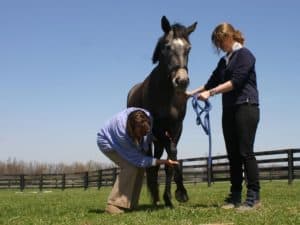USDA Steps Up Imported Meat Inspections
- Topics: Article, National & U.S. Legalities
The USDA’s Food Safety Inspection Service (FSIS) will increase inspections of imported meat under a new notice posted by the agency on April 1. The notice was issued to U.S. FSIS personnel in the midst of the horsemeat scandal that continues in Europe and Asia.
In January, DNA testing revealed the presence of horsemeat in prepared hamburgers sold in some supermarkets in the United Kingdom and Ireland. Since then, authorities in France have determined that at least 1.6 million pounds of horsemeat were substituted for beef in prepared meals in Europe and some parts of Asia. Some food purveyors—including Nestlé, Burger King, and Ikea—whose products travel through the European Union (EU) supply line before being sold in the EU, have recalled products in which traces of horsemeat were found.
According to the FSIS, none of the EU countries or companies that have recalled products due to the mislabeled beef currently export beef to the U.S.
However, as an added safeguard to ensure that the U.S. food supply remains unaffected by the developments abroad, the FSIS is increasing species testing for meat imported into the country, the agency said. FSIS Notice 25-13 instructs department import inspection personnel to carry out increased species sampling and testing of all meat products arriving in the United States from Ireland, Northern Ireland, Poland, the U.K., and Iceland. The notice informs personnel that the agency will conduct species testing on any imported beef trimmings or other raw ground beef or veal components, regardless of the products’ country of origin; raw ground beef or veal samples collected by the FSIS will also be analyzed for the presence of Shiga toxin-producing Escherichia Coli, according to the notice
Create a free account with TheHorse.com to view this content.
TheHorse.com is home to thousands of free articles about horse health care. In order to access some of our exclusive free content, you must be signed into TheHorse.com.
Start your free account today!
Already have an account?
and continue reading.
Written by:
Pat Raia
Related Articles
Stay on top of the most recent Horse Health news with












